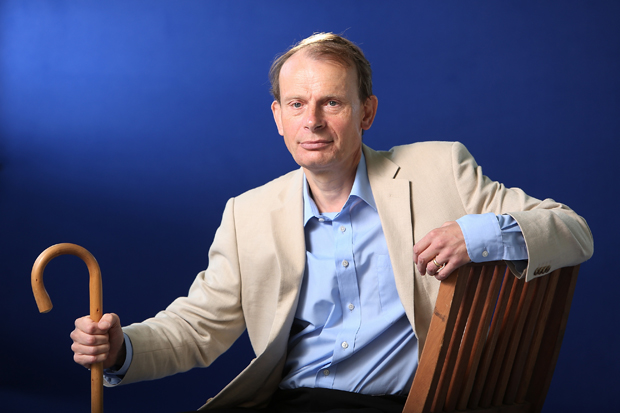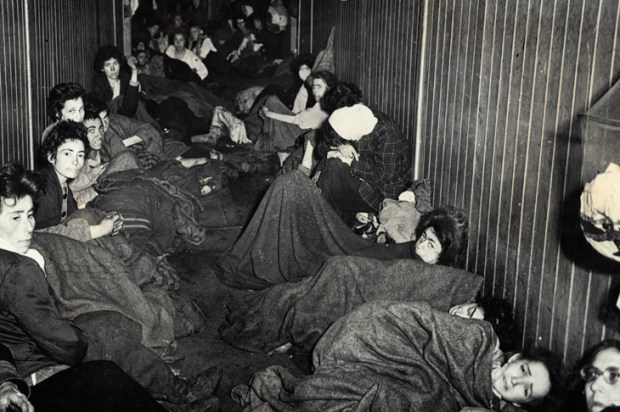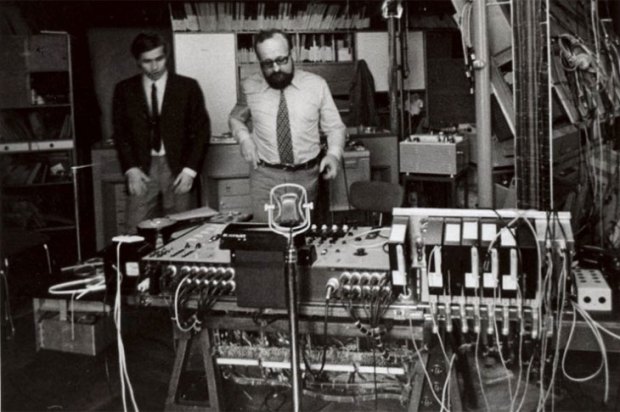It was as if Andrew Marr and his guests on Start the Week on Monday morning were standing on the edge of a precipice with no idea how far they would fall if they strayed too near the edge. Their conversation this week, Marr told us, would not, as usual, be a live discussion but had actually been recorded in Paris on Friday, just hours before the terrible events of later that evening. Their discussion, quite coincidentally, was focused on French history, society and identity as part of a new Radio 4 season inspired by the great 20-volume series of novels by Émile Zola, which create a fictionalised record of life in France at the turn of the last century. (Later on Monday, Glenda Jackson, the former actress and MP, introduced a feature programme about Zola as a backdrop to the forthcoming three-part dramatisation of the novels, in which she is going to play a leading part, her first acting role for decades.) But Marr and his guests — two novelists, a historian and a journalist, of French, British and Arab-French extraction — would make no mention of what had just happened because they had no clue of what Paris was about to witness. Should we still hear it?
Marr said Radio 4 had decided to go ahead, and wisely too. The conversation was not in the least redundant or anachronistic. On the contrary, it was unexpectedly gripping precisely because his guests were attempting to give us their understanding of where France stood at that time and how it had got there without any agenda. Mention was made of a society divided between Catholic right and secular left, between those of generational French descent and those whose parents and grandparents were immigrants, of the war in Algeria and the chaotic way in which France had got rid of its colonies. We also heard about the legacy of the French Resistance, which was in large part organised from outside the country rather than from within. But all this was said in the context of trying to understand what it means to be French now, without knowing that the country was on the edge of a precipice. Their discussion was not affected by trauma but was rather intent on meaning, on rational inquiry. This made it all much more meaningful. As Agnès Desarthe said, quoting Racine, ‘My ills began much earlier,’ before warning us, presciently, that in France everybody ‘is shutting down instead of shouting up’.
Another conversation of a different dimension but no less gripping was to be heard on Friday afternoon in Nalini Chetty’s smart two-hander Puellae — Or the Truth About Chips and Other Things (directed by Bruce Young). Don’t be put off by the pretentious title, ‘puellae’ referring to the Latin for girls. Tess (played by the author) and Neve (Samara MacLaren), old schoolfriends, have met up in an Edinburgh wine bar and over a glass or two of Pinot Grigio begin dissecting a friendship that began when they were both teenage girls at school. Now they have grown apart: Tess in London pursuing her dream to become an artist, Neve about to get married, complete with huge ‘rock’, big mortgage and a safe bet as a husband. Not much happens in words, yet an awful lot is said in a play that shows just how much can be conveyed on radio in a 45-minute sketch. Who hasn’t experienced that ‘homecoming minefield’, knowing you will end up questioning yourself on how much progress you have made? Or become painfully aware of how much has changed when looking at an old photograph?
The World Service’s annual 100 Women festival, celebrating the achievements of women across the continents, was launched this week with the first in a documentary series looking at the experiences of three generations of immigrant women from Bangladesh, Jamaica, Poland and Nigeria. How settled do they feel? How do they explain their identity? In Home Aasmah Mir talked to Shaheen Choudhury Westcombe, who arrived in Britain in 1972 from Bangladesh, a trained architect who never intended to stay but who now works in community projects here and in Bangladesh, to 44-year-old Shamshia Ali, who was brought up in Darlington and Sylhet and sees herself at home in both places, and to 27-year-old Shanaz Begum who lives in Tower Hamlets and teaches at the Mulberry School where 98 per cent of pupils are of Bengali descent.
Shaheen, who grew up in Bangladesh just after Partition when ‘the hallmarks of the British Raj could still be seen’, read Dickens as a girl, spoke English fluently, and felt as if London was familiar to her when she arrived. Yet she remembered how people would stare at her, and one man tapped her on the shoulder and told her, ‘Paki, go home.’ She replied, ‘First of all I’m not a Paki and secondly, yes, I will go home. I haven’t come here to stay. I will go home after 200 years because the British went to our country for 200 years.’
Got something to add? Join the discussion and comment below.
Get 10 issues for just $10
Subscribe to The Spectator Australia today for the next 10 magazine issues, plus full online access, for just $10.
You might disagree with half of it, but you’ll enjoy reading all of it. Try your first month for free, then just $2 a week for the remainder of your first year.














Comments
Don't miss out
Join the conversation with other Spectator Australia readers. Subscribe to leave a comment.
SUBSCRIBEAlready a subscriber? Log in